Not only is questioning established historic narratives healthy, it is honorable and good.
Back in September, Tucker Carlson interviewed Darryl Cooper, a podcaster, and the two discussed the so-called Post-War Consensus. To the outrage of many, including many evangelicals, Cooper questioned the accuracy of what we’ve been taught about World War II. The notion that it takes time between the passing of historic events and our proper estimation of them is a pretty common thought in academic historiography, also known as “letting the dust settle.”
Despite the reasonableness of Cooper’s observation, many came relatively unglued, insisting that such “revisionism” had undertones of anti-semitism, or Nazi sympathies. Despite Cooper saying nothing positive of Adolf Hitler, because he recalled less-than-perfect aspects of Churchill’s role in the second world war, surely he was engaging in pro-Nazi propaganda. Carlson was then excoriated for ‘platforming’ a “Nazi apologist.”
Anti-semitism advances. In this interview, Darryl Cooper tries to recast 1) Hitler as a leader overwhelmed by the logistics of war and 2) Churchill as a "psychopath" and "the chief villain" of WWII.
— Owen Strachan (@ostrachan) September 4, 2024
Hatred of the Jews runs through all of this. That, friends, is evil–pure evil. https://t.co/4HYue1LyfU
Evangelical leaders like Owen Strachan (above) were quick to deride those willing to give Cooper or Carlson a hearing, and young men neck-deep in the Populist Social Revival (PSR) responded as you would expect when the de facto heads of the religious establishment forbade them from having such a view; they adopted the forbidden view.
For Strachan, and so many others, the willingness to characterize Churchill as anything less than “the man appointed to save the West” (these are Strachan’s words), is “evil, foolish, and objectively insane” (also Strachan’s words). Watching the response to criticism of Churchill could have, after it, a new razor named – perhaps Strachan’s Razor – that the more closely aligned one is to their own establishment (whatever kind of establishment that might be), the more they protest an attempt to deviate from established narratives.
Since then, evangelicalism has felt the rippling effects of the PSR in our circles. The ill-fated and ill-conceived Antioch Statement, produced by Doug Wilson, James White, and others, was published last week and squarely took aim at those questioning the Post-War Consensus, accusing them of a theological and moral failing. Doug Wilson likened them to fatherless boys who need direction (by comparison, the last time he used this description it was for rogue criminals perpetrating mass violence in America’s streets).
The rest of us sat contemplating the weirdness of our current timeline, with Douglas Wilson and James White aligning perfectly on this issue – including the condescension – with Russell Moore, all apparently convinced that reevaluating World War II is a tell-tale sign of spiritual sickness. The Antioch Statement called this the “unwillingness to accept the received accounts of almost anything.”
WHAT IS THE POST-WAR CONSENSUS?
That depends who you ask, and in what context. Originally, the term referred to the political and economic view of Great Britain from the end of WWII to at least Margaret Thatcher. But in this context, it refers to the “received account” (to quote the Antioch Statement) of the historical narrative of World War II.
Why the war began, how the war grew from a regional conflict to a global war, who the bad guys and good guys were, and the inscripturated canon of facts and figures as agreed upon by the winners of that conflict, are all a part of post-war consensus.
Most attention on the post-war consensus involves data coming out of the Holocaust. For example, the figure of “six million Jews” killed in German concentration camps, is a figure first posited in 1961 by Dr. Wilhelm Hoettl in a testimony against war criminal, Adolf Eichmann. Although the spread given, at the time, was “between 5.1 and 6 million,” you’re not permitted to say it’s 5.1 million. That would be challenging the post-war consensus because that six million has, somewhere along the way, been the accepted – and only accepted – figure fit to be uttered.
But most of post-war consensus is far less specific than the number of Jewish dead. Why did Hitler invade Poland? He was evil. Why did Germany fall in lockstep behind Hitler? He spoke well and it was mesmerizing. Why did Churchill want a world war? Hitler would have invaded all of Europe. When did the origins of World War II begin? Not a day before January 30, 1933.
Anything short of these answers has been forbidden in the West since the war ended. After all, most of us have grandfathers or great-grandfathers who fought valiantly in this conflict, and as the Antioch Declaration points out, to question the narrative is to “dishonor their legacy.”
Of course, immediately following the aftermath of World War II, our current post-war consensus had not yet been established, and that was a very good thing. The Allied Powers (particularly the United Kingdom and United States) did not make the same mistakes in their Marshall Plan, that they made after World War I. Chiefly, they recognized that Germany’s revolt against the West had a historic context, chiefly their mistreatment at the hands of the UK, and the plan would not make those same mistakes twice.
The West, in the first few decades after the war, acknowledged those mistakes were made, and sought to avoid them. But as the Post-War Consensus grew from the history textbooks, the ideas that resulted in the Marshall Plan became forbidden concepts and history grew generalized in a good vs evil paradigm. And today, establishment figures like Owen Strachan are very, very committed to the narratives they were taught in high school.
HISTORY IS MORE COMPLICATED THAN WHAT YOU MIGHT THINK
The truth is, anti-semitism exists and is indeed evil (although, no more evil than any other kind of race-based hatred). And the truth is, Hitler indeed did seek to exterminate the Jewish race, at least in Germany and German-occupied Europe. And, of course, he killed myriads and multitudes and no doubt, millions of the Jewish people in an attempt to do so.
However, just as the Allied Powers had to take a real estimation of the root causes for Germany’s aggression in order to prevent it from ever happening again, the world needs an honest accounting of the “causes of things” in order to prevent tragedies in the future.
That said, it’s incumbent upon us all to recognize that “victors write the history books.” That’s a quotation from Winston Churchill, who retired from politics and became a historian and literally wrote the history books. The point of Carlson and Cooper in their now-infamous podcast, is that time must pass to weed out mid-war propaganda from post-war history. That’s fair, no matter what.
OUR PRESENT CIRCUMSTANCES REQUIRE QUESTIONING THE POST-WAR CONSENSUS
It’s not my contention that Post-War Consensus, so far as WWII is concerned, is necessary to re-evaluate the evil of Hitler. Dead men need no public relations, and especially not evil men like Hitler. But let’s take a moment and ponder where we are in our current timeline.
Currently, mainstream media would have us believe:
Vladimir Putin invaded Ukraine for no particular reason, except that he is evil. Ukraine, which was just minding its own business, was enjoying its independence from any interference or influence of another nation. For the sake of nothing but nation-conquering, Russia attacked Ukraine as a springboard to rebuild the Soviet Union. The United States and NATO then came to Ukraine’s defense for purely humanitarian purposes, staving off an impending genocide of the Ukrainian people, because it’s in our strategic national interests.
Mark my words, that’s how the tale will be told in the history books for at least 50 years, should the world not ignite into Nuclear Winter. In fact, I can guarantee you that is already in Western textbooks. I’d provide an example, but I can only find news stories in English about Russian textbooks saying precisely the opposite (as you would expect).
However, the above mid-war consensus, as it’s given in the press, is hardly accurate. Russia invaded after NATO promised expansion to Ukraine, in violation of a promise made to Russia at the close of the Cold War in 1991. At the time, NATO acknowledged that moving troops any closer to the Russian border would rightly be taken as an act of aggression and thwart a tentative peace with Russia. Meanwhile, the United States government conducted a coup in Ukraine in 2014, installing the nation’s current leadership, and embraced the nation as a puppet state. Russia then invaded five days after Kamala Harris announced NATO’s plans to annex Ukraine. A great many Ukrainians are sympathetic to Russia, because a great many Ukrainians are Russian. In fact, a majority of Ukrainians are Russian in areas like Donetsk, Makiivka, Ternivka, Dnipropetrovsk, Krasnodon, Sverdlovsk, and Krasnodon Raion, particularly in the parts of Ukraine that Russia initially wanted to occupy. Little attention has been given to Ukraine’s imprisonment of journalists who speak of these things.
UNDERSTAND THE IMPLICATIONS OF THE POST WAR CONSENSUS IN THIS CURRENT CONFLICT. World War II was caused, largely, because of Great Britain chose not to treat Germany as though the Great War had ended. They refused to give Germany the right to their own national security. Although we learned that lesson after WWII, we forgot the lesson after the Cold War, and have treated Russia as though the Cold War never ended. We have not eased up on our hostilities or changed our foreign policy toward Russia accordingly. This is why it’s so dangerous for evangelicals to be told to accept the “post-war consensus.” It prevents us from repeating past historical blunders.
And among evangelicals, almost no attention has been given to Ukraine’s ouster of the Russian Orthodox Church under threat of imprisonment, or the root causes of conflict centering on Ukraine’s embrace of homosexuality and transgenderism and Russia’s opposite of the Western sexual ethic (or lack thereof). Instead, evangelicals have focused on Russia’s ban on American adopted of Russian babies, without explaining that it’s because the United States allows homosexuals to adopt, and American policies allow the sexual mutilation of children. For example, Russell Moore and Kay Warren have beat the drums of war over Russia’s “adoption ban” but have not made an effort to explain that their reason should seem wholly acceptable to evangelicals under any circumstance. It would make more sense for Russell Moore to use his influence to get America to drop its child mutilation and child grooming adoption policies than deride a foreign ‘dictator,’ but a lot about Russell Moore doesn’t make sense (if you consider him a Christian).
IT’S A DANGEROUS TIME TO FORBID NARRATIVE-QUESTIONING
It seems that Americans, and in particular, American evangelicals who are more conservative than the average, are finally ready to consider that what we’ve been told about the Ukraine conflict might not be entirely true. In fact, American support for the war in Ukraine has dwindled to an all-time low, and people are no longer accepting the narrative we’ve been given.
I’ll write that again. Americans are no longer accepting the narrative we’ve been given.
And neither, should we. The world is on the verge of a nuclear apocalypse, as the Biden Administration has approved the use of American rockets to strike at Russia’s interior, and Ukraine is now using them. In response, Putin is flexing his muscle with a new Intercontinental Ballistic Missile that can carry a nuclear payload and strike not Kiev, but Dallas. And Putin has nearly 6 thousand nuclear warheads to put on those missiles.
Questioning narratives is good. Questioning narratives prevents war. Questioning narratives keeps us from repeating mistakes, just as the Allied Powers chose not to repeat the mistakes they made after World War I.
Chastising evangelicals for coming to the same conclusions about the context of World War II that informed the Marshall Plan – chiefly the complicatedness of history – is hardly appropriate. And chastising evangelicals for not accepting the “received accounts” of virtually anything without research and investigation is quite the opposite of Christian discernment.
Brownie points can certainly be scored by insinuating your opponents are anti-Semitic for questioning things not remotely related to the number of Jews killed in the Holocaust, but that has real-world consequences. Those consequences, in our current historical timeline, could be the end of our historical timeline altogether.

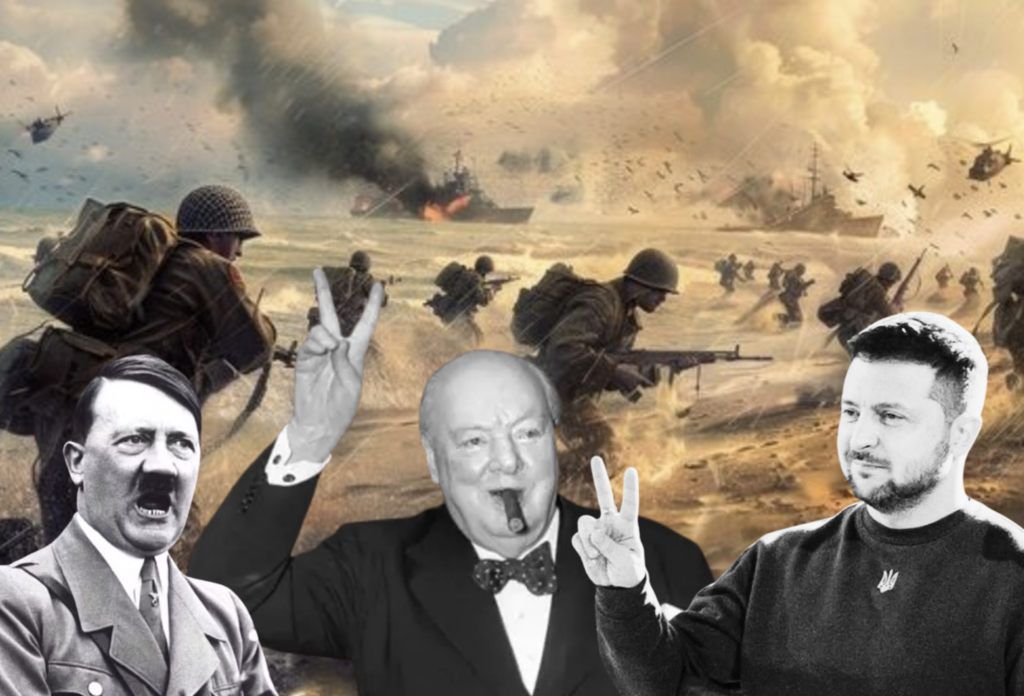







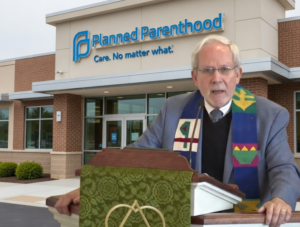

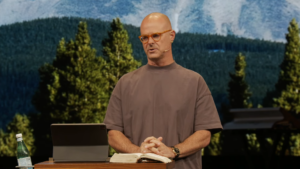



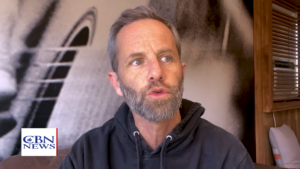
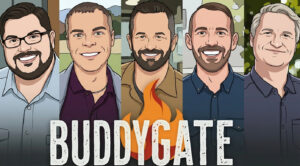
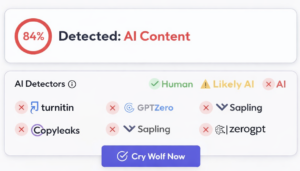

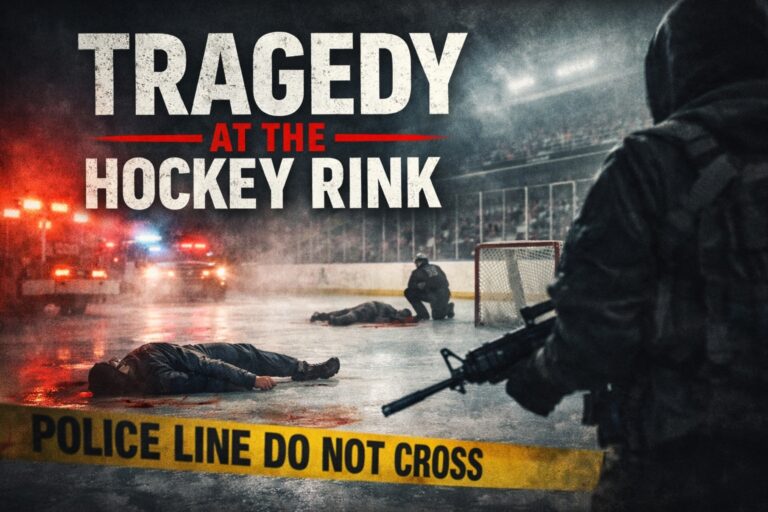


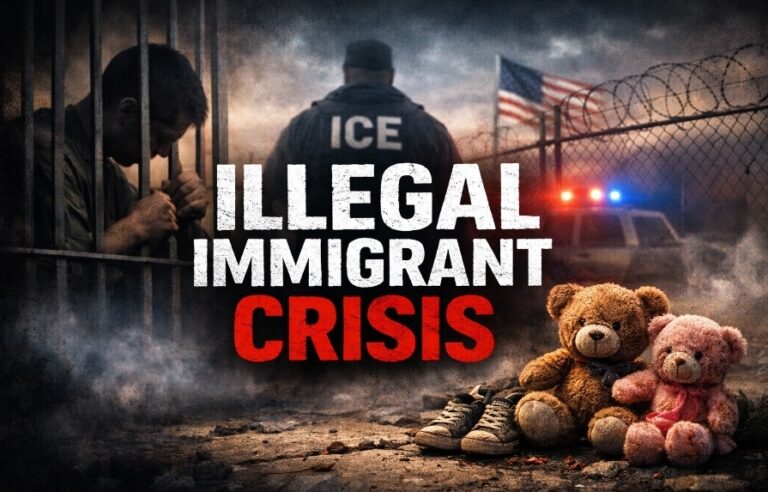

54 responses to “Now’s The Time for Christians to Question the Post-War Consensus”
Ukraine was in fairly major civil war before Russia “invaded” and entered the war on the side of the eastern Ukrainians, those who had voted to leave to form their own country. Certainly Russia does have some legitimate beefs. NATO missiles right up on their border. Trade agreement issues, and so on. If it were us, would we put up with Russia putting missiles right across the border in Canada? No, we wouldn’t. But what people fail to realize about Ukraine is that there are more than two sides. There’s mainly three sides. Europe, Russia, and the Eastern Ukrainians. We should be standing for the Eastern Ukrainians. So I agree on Ukraine, for the most part.
As to what Mr. Cooper said about WWII, I watched that part of the video, and I have to agree that he did engage in a bit of revisionist history. The Holocaust began when Germany invaded Poland (though there were extermination programs in place prior, for those deemed unfit to live – disabled and so on). But the invasion of Poland is generally when they started the mass killing, with Operation Tannenberg, and other such actions. And this is very well documented. They would enter a town in Poland, round up all the “subhumans”, strip them naked, march them out of town, or in some cases to the edge of town, and shoot them. There are written eye-witness accounts and there is video evidence of this occurring immediately upon the invasion of Poland. A few weeks into it they got the bright idea to dig big ditches, and to make the Jews stand in the ditch, to make it easier on themselves. This was in 1939. And the murder of Jews, and others deemed to be subhuman, continued through to the Wannsee Conference, in January 1942, when they officially decided to enact the “final solution”. During this time, they had continued to create more efficient methods of mass killing, and started adopting the gas method in June of 1941.
So Cooper is historically incorrect. The mass genocide in concentration camps using gas chambers may not have started until after Poland was invaded, but the mass genocide using bullets started immediately. It was over two years into the Holocaust before they started using the gas chambers, as a more efficient means of mass murdering more people in less time with less manpower. (more efficient methods were implemented specifically in order to accommodate the mass murder of millions).
I do take issue with some things Cooper said. And others are right to do so as well. I have no problem with trying to look at things objectively, but his characterization of the invasion of Poland was nowhere near historically accurate. Not even close.
That is not to say that the consensus on WWII is correct, in terms of what the textbooks say, and so on. The most obvious is the influence of Darwinism. You won’t find any public school textbooks that say a peep about that. Obviously the attempt to characterize nazis as Christians is nowhere near correct. Glossing over the fact that they actually were socialists, is another thing that is ignored. And very, very few know about the influence of homosexuality, the party being formed in a gay bar, most of the SA, including the original leader of it Ernst Rohm, and so on.
Some of the other post-war consensus, pertaining to the causes, such as the notion that it was caused by isolationism. I disagree with that.
A ton of it is indeed false, or at least highly questionable and debatable. And there are also a lot of problems with the aftermath. The monster that now is the CIA and Five Eyes, which were supposed to be disbanded after the war but were not. Our getting involved in conflicts on behalf of Europe, ever since. Ukraine is one example. Iran was probably the first such operation after the war – our CIA operating to protect British interests (railroad interests if memory serves). On and on. There’s a ton that is worthy of discussion, questioning, and debate. Nothing wrong with questioning the consensus.
Not even the “Subhumans”… starting in September 1939, they rounded up ANYBODY who had been a VIP or in a position of leadership from athletes to small town mayors to Clergy to elderly and invalid retired officers and put them in Mental Hospitals (which they had cleared by shooting the inmates). After a short time they were shot and buried in the trenches. The Polish Foresters wisely marked the trenches they were ordered to dig as “Fire Breaks” and the bodies have been identified.
Revisionist Historians try to play the “It was normal to shoot large numbers of civilians when invading the country” game. No, it most certainly was not. At no time after the 17th Century were large numbers of civilian leaders simply rounded up and shot by invaders immediately.
I can’t think of a French, Italian, British, or Imperial German government that simply “Shot a bunch of civilian leaders and VIPS” during a war in the centuries prior. An occasional known hothead, whacked out on the sly? Sure. But not 1000s of them like the Nazis had done by December 1939.
Thanks JD!
You nailed it in the last paragraph.
“The truth is, anti-semitism exists and is indeed evil (although, no more evil than any other kind of race-based hatred). And the truth is, Hitler indeed did seek to exterminate the Jewish race, at least in Germany and German-occupied Europe. And, of course, he killed myriads and multitudes and no doubt, millions of the Jewish people in an attempt to do so. ”
Utter, utter lies. Absolutely nothing truthful in here at all.
The official death toll from the WORK CAMPS was around 280,000 people. As recorded by the Red Cross, and last amended in 1983.
There is no evidence WHATSOEVER for “Hitler indeed did seek to exterminate the Jewish race”…lies. Not one document to prove this. AT ALL. Not even a SINGLE QUOTE FROM MIEN KAMPF. NOT ONE.
Is that what you call facts? Pushing propaganda from the people Jesus Christ himself called the “Synagogue of Satan”?
The TRUTH is, Jews are NOT SEMITIC.
The TRUTH is, the white race is Biblical Israel.
The TRUTH is, Jesus Christ was NOT Jewish, but WAS a Hebrew and Israelite.
The TRUTH is, Jews are neither HEBREWS nor ISRAELITES.
The TRUTH is, Communism is a JEWISH CONSTRUCT.
Judah (from which the English word Jew is derived) was the son of Jacob (also called Israel).
Jews are descendants of Shem (i.e., Semitic)
Europeans are descendants of Japheth. (including ancient Greeks)
This is a Jewish lie. FULL DISCLOSURE: ARE YOU JEWISH?
Judah and Jew are NOT THE SAME WORD. JEW does NOT come from JUDAH. JEW was MADE UP in the 19th century, it NEVER APPEARED IN SCRIPTURE PRIOR TO THAT.
There is a DELIBERATE and DESPERATE attempt to confuse the 2 words in the eyes of the goyim, and the entire purpose of that is to FOOL “Christians” into believing the JEWS are somehow BIBLICAL ISRAEL when the are NOT.
JEW = COMPLETELY MADE UP. When you see the word “JEW” in the Bible, UNDERSTAND IT TO MEAN JUDEAN.
PHARISEE = MODERN JEW. When you see the word “PHARISEE”, UNDERSTAND THIS MEANS MODERN “JEW”.
There is a DISTINCT REASON modern “Jews” are called ISRAELIS and NOT ISRAELITES.
BECAUSE JEWS ARE NOT ISRAELITES.
REFERENCE: Jewish Encyclopedia, 1980 Pg. 2 under the heading “Identity Crisis”.
REFERENCE: Pretty much everywhere in the Bible you’ve never read.
I have corrected you on this several times (posting under different names), using the original Hebrew and Greek. You have ignored it because you do not give a hoot what the scripture truly says.
For others who may not know …
The word translated as Jew is Jehudah (also spelled Yehudah) in Hebrew, and Iouda in Greek.
The word translated as Judea from the original Greek is a combination of the root Iouda and the suffix “ia”, which means land of. So the word in Greek is “Ioudaia” (example Mark 1:5), which literally means “land of the Jews”. The word translated as Judean is “Ioudaian” (example John 3:22), which literally means “One who is from the land of the Jews” – i.e., a Jew.
The root Iouda occurs 7 times in the New Testament, and is translated in each instances as Judah. And I explained why this is to you, as a result of the split of northern and southern kingdom, and the northern kingdom being overrun, at that point the only Jews in the land of Israel were a part of that southern kingdom of Judah. As far back as the book of Esther, the word Yehudah/Jehudah is used to refer to persons not of the tribe of Judah (Benjamites – because the tribe of Benjamin was a part of that southern kingdom of Judah).
Now I’m going to tell you this. If Jesus was not a Jew, then He did not fulfill the Messianic prophecies, and would therefore not be the Messiah.
You not only deny the Gospel in your failure to recognize sin as the problem, and by extension Jesus as the solution. You don’t even truly accept Jesus as the Messiah, because you deny that He fulfilled the Messianic prophecies.
I know you will not heed this, letmepicyou. You never have. You’ll be right back spouting the same stupidity five minutes from now. Because you are not truly a Christian, and you don’t truly care what the Bible says about anything whatsoever. So I post this information yet again, for the umpteenth time, for the sake of others who may read.
What’s ironic, and throws even more of a wrench into your stupid and ignorant narrative, is that in many languages the “d” sound was retained, and German is one of them. The German word for Jew is Jude. For Germans, the Holocaust was the slaughter of the “Juden”.
Because the word Jew is derived from the word Judah (Yehudah, Iouda)
As for the “synagogue of satan” to which you referred (Rev 2:9, 3:9), speaking about those who claim to be Jews but are not, the word used in both verses is “Ioudaious”. (note it is the root Iouda, which by itself is translated as Judah, plus the suffix “ious”) Nobody claims to be of Judah or of Judea, though by your own circular reasoning, they would have to be doing so in order to qualify as a part of that synagogue of satan. You can’t pick and choose what the word means, redefining it every other sentence, in order to suit your narrative. No, those verses more likely refer to people such as yourself, letmepicyou, considering you falsely claim to be a descendant of Jacob, solely because of your white skin.
In other words, they couldn’t possibly be a part of the synagogue of satan, according to the original text, unless the word Jew is derived from the word Judah. So, make up your mind.
That’s funny, you’re the one claiming “Jew” and “Judean” means the same thing.
Except, here again I’ve proven you wrong. As it’s those that CLAIM TO BE JUDEAN (BUT ARE NOT), FOR THEY ARE THE SYNAGOGUE OF SATAN.
Remember, GENIUS, when you read the word “JEW” in the Bible, it means “Judean”, and when you read the word “Pharisee”, it means “JEW”, as in “MODERN JEW”.
Sad. What I’ve said is obviously 100% consistent.
Now you’re saying Judeans are the synagogue of satan?
As you also claim Jesus wasn’t a Jew but was Judean?
How’s that supposed to work, junior?
LOL … you’re too much …
There are several Greek words translated as Jew, Jews, and so on. And you’re correct that sometimes the word is Judean, or a derivative, but not always. If it doesn’t include that “ia” suffix, then Judean is not the root. If Iouda is the root, without the “ia” suffix, then the root is Judah/Yehudah. It’s been several decades since I took NT Greek, but I remember enough that I can tell you that with reasonably certainty.
I’ve done enough research over at Biblehub, in order to answer you, that I know there are several such words translated as Jew, that are not derived from anything that would translate as Judean.
There are many, many instances where the word Jew does not refer to the Pharisees (or solely to church leaders). Sometimes it does, essentially as representatives of all Jews. But not always. This is why you have to read and understand the scripture in context.
We have the same sort of thing in the English language. If I said, “Americans put a man on the moon”, am I talking about any and all and every and each American? No, I’m talking about what the leaders of the nation did. It’s about the same difference. You have to understand the context.
And of course, the Pharisees were also Judean, as were all the church leaders, because Jerusalem is in what was Judea at the time.
The word in Rev 2:9, 3:9 does not have the “ia” suffix, and therefore does not have Judea or Judean as the root. The root is Judah, from Yehudah.
Jesus of Galilee. Jesus of Nazareth. Etc.
Nazareth was in Galilee, and Galilee was not in Judea. It was north of Samaria, which was north of Judea.
Jesus was a Jew, as were all the Jews in Galilee (including several Disciples), not because of location in Judea, but because of lineage. In His case, directly from Judah, through David. Though, as discussed before, by that time the word Judah/Yehudah/Iouda referred to all descendants of Jacob.
I could go on forever. But as I said, I know good and well you wont heed a word of correction. You never have, because you don’t really care.
The Ashekenazi are descendants of Japheth (Ashkenaz was his grandson), and were essentially grafted in as converts. As you can read the OT text, the Jews accepted outsiders. Though not always, the Samaritans being one example. So it is true that not all are blood descendants of Jacob. But it is not true that none are blood descendants of Jacob – not even close to true.
Since Christians are grafted in (Romans 11), we are also Jews, from a Biblical standpoint. But we do not replace the vine. We’re grafted into it.
As it pertains to what’s going on in Ukraine, and Bible prophecy, things get a bit interesting. Japheth settled near what is now eastern Ukraine. His son Magog settled to the west, near what is now central and western Ukraine. If you draw a line straight north from Israel, it passes right up through where Magog settled, pretty much right through the Crimean peninsula, which is almost exactly the dividing line of the current Ukrainian civil war. I don’t know about the prophetic relevance, but it is interesting to say the least.
Jews who are called Ashkenazi (which are not all Jews), are called as such due to paternal lineage and European appearance, but I believe they do have blood lineage through maternal lines, or claim as much. At this point in history, out many generations, everybody on the planet probably has some blood relation to Abraham, and probably all three of Noah’s sons. But the lineages are labeled by mostly paternal lines. And, Biblically, maternal lines do matter. Jesus’ lineage being the foremost example. The lineage given in Matthew is Joseph’s lineage. The lineage given in Luke is Mary’s lineage, though it leads to Joseph because when a man marries he takes on the lineage of his wife. Both Mary and Joseph were of the house of David, and the Bible makes a point to make that known.
As far as that goes, there’s a good possibility most people on this planet have blood relation to Jacob. Many Jews became Christians, and took that as their identity. When Hadrian ransacked Jerusalem, Jews were scattered all over the world. And that was 1900 years ago, around 130 AD. So you’re talking about hundreds of generations. Two to the power of 100 is 1,267,650,600,228,229,401,496,703,205,376. Just a wee little bit more than the population of the planet in 130 AD. So odds are, we all have some blood relation.
And I say this to reinforce the point that it is frankly just plain stupid to even be trying to talk about race. It’s dumber than dirt stupid.
Another JEW LIE.
You’re a hard-core Jew running damage control CLEARLY.
If you can point to a time in any genetic history where negro women were having Asian babies, and Asian women were having white babies, you go ahead and do that you little nitwit.
I can point you to INNUMERABLE SOURCES where JEWS THEMSELVES REFER TO THE JEWISH RACE.
How many would you like, Chaim Goldberg?
I can point to my own household, dummy. My brother in law is black. His children are about half and half in terms of skin color. And my grandniece, his granddaughter, is about whiter than I am – and I’m about as white as it gets. It only takes a few generations for such physical characteristics to either show up or go away. But the blood lineage still remains.
The black Jews in Ethiopia are a perfect example. They’re just as black-skinned as they can be. But the DNA lineage has been proved. They are indeed Jews.
Aren’t we all descendants of Noah, yet couldn’t possibly all look like Noah?
Is there a brain in your noggin?
If you think it’s impossible for asians to have black ancestors, whites to have asian ancestors, and so on, you’re even dumber than I thought you were. And I’m quite convinced you may be one of the dumbest posters on the entire Internet, at this point in time. Either that, or you’re one of the worst trolls to have ever tried to troll.
1, No we are NOT all “descendants of Noah”. That is yet another falsehood taught by Zionist lackeys from their Scofield bibles.
2, You do not have any black relatives having white children and vice versa. You have mixed bloods and the resulting genetic dice rolls, but we’re not talking about that. We’re talking about, white women won’t just spontaneously have a black child. To claim that is abject foolishness.
3, the “Black Jews” in Ethiopia (I’m glad you used the term “black Jews” rather than “black Israelites”, which is an utter falsehood), are a result of African slaves suffering the rapings of their Jewish masters, and later converting to Judaism. If the Jews weren’t so rapey, “black Jews” simply wouldn’t exist, and their existence or non-existence is largely irrelevant, unless the conversation has turned to the FACT the JEWS RAN THE SLAVE TRADE and are the ones that actually owe reparations to the blacks.
4, like most Jews, you work diligently to confuse and befuddle issues (oh, Asians can have blacks in their ancestry). No duh, TROLL. The point is that a PURE BLOODED ASIAN, who has NO NEGRO IN THEIR ANCESTRY, WILL NOT SPONTANEOUSLY GENERATE A BLACK CHILD, and so “shared ancestry” CANNOT EXIST. It is beyond reason.
There is also NO BIBLICAL SUPPORT for the idea that “all races somehow descend from Noah and his sons”. None whatsoever. Not only does the Bible later mention other encountered peoples (OMG!), there is the ACTUAL HISTORY OF CHINA which CONTINUED UNABATED through the so-called “global flood”, even in fact recording it in their history. Something cleverly omitted in any genuine conversation seeking historical truth. Which you’re clearly not trying to have. Troll.
I did not answer you before, because you essentially refuted yourself with that comment.
“I have determined to make an end of all flesh” – Gen. 6:13
“Everything that is on the earth shall die.” – Gen. 6:17
Etc …
There are several scriptures which indicate the flood was global. But your foremost problem is this: Why would God put two of every kind of animal on the Ark, if all He had to do would’ve been to direct the animals to migrate to China for a while? Or if some of certain kind were already in China, why the need to preserve “every” kind? The local flood theory does not jive with scripture. Not even close.
But you might be interested to learn that there is indeed a ton of evidence that the flood was global …
Watch this documentary: https://tubitv.com/movies/100027290/the-ark-and-the-darkness
You can go to China right now, as you can anywhere in the world, and find the remains of sea life buried in the ground, layers of sediment bent out of shape, and so on, indicating a cataclysmic event with enough fluidity to produce those bends rather than breaks and cracks. There is such evidence that the ground was once under water, even at highest elevations.
Yet even rejecting the flood, you would still have to recognize all are descendants of Adam, and don’t look like Adam. If you deny that and deny Creation, then you deny the Gospel. All are born into sin because all are descendants of Adam.
Watch that documentary …
You don’t have to surrender your intelligence in order to believe the scripture.
Quite the opposite. You have to remain willfully ignorant to not believe it.
How much intelligence does it take to believe all that exists in the entire universe is the result of some random explosion of a spec of dust? Never mind where the spec of dust came from? And then that life sprang into existence when lightening struck a mud puddle?
… not much
There were giant people in the land (Nephilim), and also giant animals we call dinosaurs.
Look at a picture of the Earth from space. Notice how smooth the surface is relative to its expanse.
See, fossils form in sediment. They’re found in sedimentary rock. In other words, fossils themselves are evidence of cataclysmic flood, and of the rapid burial of those creatures, in massive amounts of sediment rapidly deposited by movement of massive amounts of water. And they’re found at even the highest elevations.
Yours is backwards spaghetti reasoning that breeds nothing but confusion and inconsistency. That’s why you keep backing yourself into corners.
Using the revisionist logic as this article implies is the same tactic used to discredit the Bible. We should be careful to write history using a rearview mirror while looking forward.
The same can be said for having JD Hall write this article as a way to slide him back into the discernment saddle while overlooking his record.
The Post-War consensus is either defended at all costs or thrown out in favor of venerating Nazis. It seems that a thoughtful evaluation is a narrow path that risks falling off either edge. JD has walked this path well and given his readers a lot to consider. Thank you.
“Venerating Nazis” isn’t some “edge”.
What kind of psycho-social manipulation are you practicing here?
Restoring the honor of National Socialist Germany, and telling the TRUTH about the Jews, WHO DECLARED WAR ON GERMANY LONG BEFORE THE START OF WW2, AS RECORDED IN THEIR OWN NEWSPAPERS, isn’t some “extremist view”, as you are CLEARLY pushing here.
It’s the TRUTH.
Why do you want so desperately to program anyone reading this that they should think in such a way? Oh yeah, to keep them away from that truth, and to make it sound as insane as the Jewish lie.
Right?
To not see the plain lie…that there were 4.5 million Jews in ALL OF EUROPE at the start of WW2…which could NEVER BECOME 6 MILLION EVEN WITH THE BEST JEW MATH…is to admit utter ignorance.
And then you have that Red Cross report that shows the ACTUAL DEATH TOLL @ 280,000.
Oohhh, empirical evidence has never served the Jew. Crushing testicles of the heroes of Nuremberg? Brutality and evil certainly serves the Jew. Eisenhower’s holocaust certainly served the Jew. But truth? Evidence? That NEVER serves the Jew.
Why don’t you try real hard to figure out the difference between “truth” and “edge”.
Dispensationalism is heresy, so Doug Wilson and James White are heretics. Jesus taught Replacement Theology in Matt 21:43 and anyone who anathematizes Replacement Theology automatically thereby ceases to be Christian. Doug and James are just tax collectors now.
No, his audience there was the High Priest and Pharisees, and the location was in the Temple (Matt. 21:23). What He was referring to was the fact that He was about to be the final sacrifice, once and for all, doing away with the ceremonial law. When the veil was rent, it pretty much put the priests, who were in charge of carrying out the ceremonial law, out of business.
I believe you replacement theology boys fail to understand that at no point since the day Jacob was born has simply being one of his descendants meant guaranteed entry to Heaven and eternal life. Never has that been the case. The difference is that Jews are under the law, and are condemned by the law, because no one can perfectly follow the law. So Jesus is the one and only way. But that doesn’t mean that the lineage is of no significance, any more than the fact that not all Jacob’s descendants will go to Heaven would indicate it is of no significance. Are they automatically going to Heaven? No. Are they still Jews, those who are under the law? Yes. And the New Testament refers to unbelieving Jews as Jews many times. It recognizes both the significance and also that Jesus is the one and only way, that the Gospel is for both Jew and Gentile. So as Christians, we are grafted in to Abraham’s promise.
If you say you replace Jews, then what are you replacing? Automatic entry to Heaven? Nope, it has never meant that at any point in history. About all it could mean is that you would very possibly be placing yourself under the law, and outside of grace.
His audience was the people themselves, and the Pharisees tried to warn the people because they saw that, but the people didn’t understand and so answered Jesus’ question about what to do with the wicked vineyard keepers “He will destroy them and give the vineyard to others” and then Jesus says “Therefore God will take the kingdom of God from you and give it to a nation that will actually produce its fruit.” Also, IF it had been to the leaders only, he would not say “another nation” but just “I will put new leaders in charge of this nation.” So no, it is in fact heresy to not believe in Replacement Theology. Emperor Titus is right above.
No, read on to verse 46. He was in the temple the entire time, and He was talking to the High Priest and Elders/Pharisees. If the Bible doesn’t tell you He moved to a different location, and to a different audience (and it doesn’t), then He did not move to a different location or different audience.
The “another nation” (Greek ethnei) He is talking about is the Body of Christ. The word can mean “nation” or “a people”. And no, it’s a non-sequitur to say that He couldn’t have said that to only the leaders in the Temple. That’s just as illogical as it would be to claim that He couldn’t have said it unless He shouted loud enough so that every Jew on the entire planet could hear Him say it. Remember, it doesn’t say He was in a Synagogue. He was in the Temple. The one and only Temple in Jerusalem, talking to those leaders who represented all Jews.
He was talking to the one and only High Priest, in the one and only Temple in Jerusalem. And you’ve got to understand that context.
Everyone understood it my way until Darby, so you’re a heretic according to the entire history of the church. Period.
Also, the subject at hand is the Kingdom of God. He’s talking about eternity. And as I said before, being Jewish has never, not since the day Jacob was born, ever meant that Jews automatically went to Heaven. Never. Right, so what He’s telling them is that they will no longer “hold the keys” if you will, to eternal life. He’s not telling them they’ll no longer be Jews.
You guys have got to get rid of this notion that “Jew” means “automatically goes to Heaven”. It has never meant that. But your conflating the two is a big reason why you’re wrongly interpreting scripture.
“I am the vine; you are the branches. Whoever abides in me and I in him, he it is that bears much fruit, for apart from me you can do nothing.” – Jesus (John 15:5)
That’s the ethnei (“another nation”) He is talking about.
“But you are a chosen race, a royal priesthood, a holy nation, a people for his own possession, that you may proclaim the excellencies of him who called you out of darkness into his marvelous light.” – 1 Pet. 2:9. And the word used there for “nation” is “ethnos”, but clearly it doesn’t mean blood lineage. It’s talking about the Body of Christ. And that’s what Jesus was talking about in Matt. 21:43.
“Jesus answered, “My kingdom is not of this world. If my kingdom were of this world, my servants would have been fighting, that I might not be delivered over to the Jews. But my kingdom is not from the world.” – John 18:36
(What Jesus said there in John 18:36, I believe you guys should give some significant thought. It pretty much describes you, and your enmity toward the Jews. Consider what I said below about postmillennialists’ tendency to want to try to create His Kingdom here on Earth, and how that might have quite a bit to do with the inordinate enmity for the Jews. Does it apply to you? I don’t know. You tell me. Sure seems to be the case.)
“Are they still Jews, those who are under the law?”
No. The Law was abolished. You cannot be under an abolished law. The law was nailed to the cross; its dead. Pretending the law still applies is heresy. In fact this is one reason justification could never be by the “works of the law,” because a defunct law that no longer counts for anything obviously cannot justify. This is in reference to the ceremonial law. The moral law still stands and everyone is under it, including Christians, as Paul says “to those without the law I was as without the law, but always under the law of Christ.”
I’m talking about the moral law. Jesus himself said in Matt. 5:17-20 …
“17 Do not think that I have come to abolish the Law or the Prophets; I have not come to abolish them but to fulfill them. 18 For truly, I say to you, until heaven and earth pass away, not an iota, not a dot, will pass from the Law until all is accomplished. 19 Therefore whoever relaxes one of the least of these commandments and teaches others to do the same will be called least in the kingdom of heaven, but whoever does them and teaches them will be called great in the kingdom of heaven. 20 For I tell you, unless your righteousness exceeds that of the scribes and Pharisees, you will never enter the kingdom of heaven.”
“Anyone who has set aside the law of Moses dies without mercy on the evidence of two or three witnesses.” (See Hebrews 10:19-31)
Read the book of Romans. Paul says that unbelieving Jews are still under the law, and that they are still Jews. And he also says that those who claim circumcision is required are no longer under grace, but are what? … back under the law. So if it is heretical for me to say that one could be under the law at this time, after Jesus death, burial, and resurrection, then the Apostles would also be heretics, because they said the exact same thing in the Epistles. The law absolutely was not done away with.
The Epistles specifically say they are still Jews. Many times over.
Paul says that in reference to circumcision in Galatians 5:2-6. So if what I said is heresy, then so is that scripture.
In Romans 11, he begins “1 I ask, then, has God rejected his people? By no means! For I myself am an Israelite, a descendant of Abraham, a member of the tribe of Benjamin. 2 God has not rejected his people whom he foreknew. … ”
Part of the reason we disagree, I believe, possibly could be because you guys also tend to be postmillennialists, some of whom essentially believe the Kingdom of God can be created on Earth, by mankind. So maybe when you read something like Kingdom of God, you cannot draw a distinction between what it means to be a descendant of Jacob (a Jew), and what it means to have eternal life through Christ Jesus. You’re not thinking about Heaven. You’re thinking about temporal earthly matters. I think maybe this is why you conflate the two. But you’ve got to understand, the Israelites are not and never have been the Kingdom of God. They don’t automatically go to Heaven, and that has never been the case. To compare that to the Gospel, which is about eternal life, is to compare apples and oranges, more or less.
See, the moral law defines sin. And the ceremonial law was how God extended (or dispensed) His grace. Romans 3 is a good place to start (and then on to 4, 5), if you want to understand. Romans 3:25 says “This was to show God’s righteousness, because in his divine forbearance he had passed over former sins.”
Notice the words “passed over”. It was just like the Passover. In Egypt, God’s angel passed by those houses with the lamb’s blood on the doorpost. Did the angel pass by any and all Jews automatically? NO, not if they didn’t have that blood on the doorpost, he didn’t. Understand? Even then, being a Jew was not automatic entry to the Kingdom of God.
Jesus is the final, once and for all, Passover lamb. He paid the price. We no longer have to go out and buy an unblemished lamb, take it to the Priests and have them sacrifice it for us, in order to pay for our sins and receive God’s grace.
So you’ve got to understand how and why Jesus fulfilled and completed the ceremonial law once and for all, as the perfect and unblemished sacrifice. And you’ve got to understand how that applied to Jews who came before in the Old Testament. Once you understand that, then you can understand Romans 3:29-31. How both the circumcised (Jews) and uncircumcised (Gentiles) are justified by faith. In the OT, for example, it was the faith that God’s angel of death would pass over, the faith that He would keep His word, and through that faith then honoring the ceremonial law, sacrificing that lamb and painting the blood on the doorpost.
Since around 130AD, when the Temple was destroyed, Jews have not been able to fully honor that ceremonial law, through which God extended His grace. Is that a coincidence? No, it most certainly isn’t, and the reason is because God already sacrificed His beloved Son, as that Passover Lamb, once and for all, to pay the debt once and for all. So now, in this dispensation and/or covenant, since there is no longer grace extended through ceremonial law, one would have to perfectly follow the moral law in order to inherit the eternal Kingdom of God. So Jesus is the one and only way. Right, you’ve got to understand that the reason the ceremonial law existed was because nobody could perfectly follow the moral law. It’s how God extended His grace. And this is what is meant by Romans 3:23, the most well-known verse in that chapter.
So I am indeed talking about the moral law, right?
To better understand how it all applied to Gentiles in the OT “dispensation”, read Romans 2:12-16, also Romans 1:20.
Romans is to arrogant branches (or worse) like Garlic to Vampires. They loathe to read it, and would rather take passages from Rev or John out of Context to justify their denial of God’s Mercy and Plan.
Some of this “professing” jew-hating murderers simply hate the mere existence of Jews and curse in their hearts for their extinction, not even a hint of praying and desiring to see their Salvation in the Lord Jesus Christ to begin with. Vile and demonic creatures like the actual nazis.
DDS is real, and it often leads to what you are spouting. (Dispensationalism Derangement Syndrome) And it is always connected to the absurdity of blaming Darby.
Wow, there are so many problems in your comment that I cannot tell if you are being serious.
DDS is real, and it often leads to what you are spouting. (Dispensationalism Derangement Syndrome) And it is always connected to the absurdity of blaming Darby.
No Experience Needed, No Boss Over il Your FD Shoulder… Say Goodbye To Your Old Job! Limited Number Of Spots
Open……. https://hik.net.in/@unicorn
I am making a real GOOD MONEY (200 to 400 Dollars / hr )online from my laptop. Last month I GOT check of nearly 13,000 Dollars, this online work is simple and straightforward, don’t have to go OFFICE, Its home online job. http://www.workhighs.com
“Questioning the narrative” can be great. But countering it with a questionable narrative is not great.
Cannot agree more. countering woke stuff with russian imperialism is not my thing.
“Everyone understood it my way until Darby, so you’re a heretic according to the entire history of the church. Period.”
Ha! There it is. Blaming “Darby”–the sure sign you have no idea about this topic–as well as you absolutely did not do your own research…plus much, much more……
Cooper’s position is “Churchill was a psychopath for maintaining Britain for a whole year (June 40-May 41) rather than surrender.”
It’s really because Cooper, like many false pacifists, simply admires brutality if it is “brutal enough” (Orwell, “On Nationalism”) and apologizes for it, while holding the enemies of the brutal to high standards of behavior, not allowing for mistakes or the Red Veil of Combat.
“hamas” cooper is on his way to branding every Jew he can “notice” and dehumanized as either an irredemable threat or some kind of Monster.